Intel Innovation Live Blog
Details on Intel's upcoming CPUs and GPUs
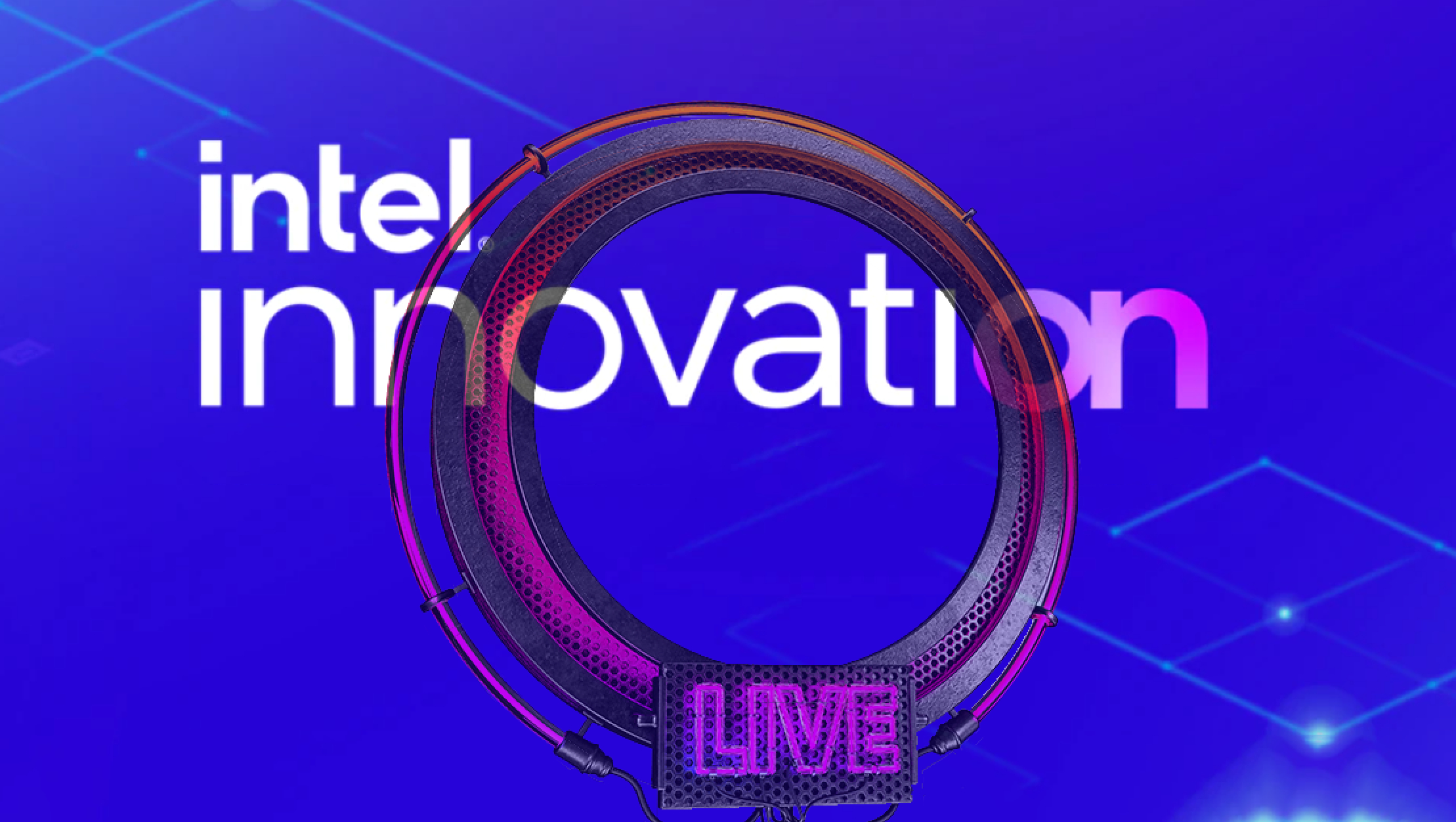
We're live at the Intel Innovation keynote. You can watch along with us at Intel's Innovation site, and the show is set to start in about 30 minutes. We anticipate Intel will be revealing all the major details for its upcoming Raptor Lake 13th Gen CPUs, alongside Arc Alchemist GPUs. There will be various guests from Intel's partners as well, though probably not for anything too exciting if you're a PC enthusiast.
If you have comments or questions during the presentation, hit us up on Twitter: @PaulyAlcorn and @JarredWalton, or alternatively @TomsHardware.
Just one day after AMD officially launched its Zen 4 CPUs — check our Ryzen 9 7950X and Ryzen 5 7600X review — Intel Innovation kicks off with a keynote from CEO Pat Gelsinger. We expect we'll hear plenty about the upcoming Raptor Lake product line and 13th Gen CPUs, Arc GPUs, and various other topics.
Intel CEO Pat Geisinger has taken to the stage.
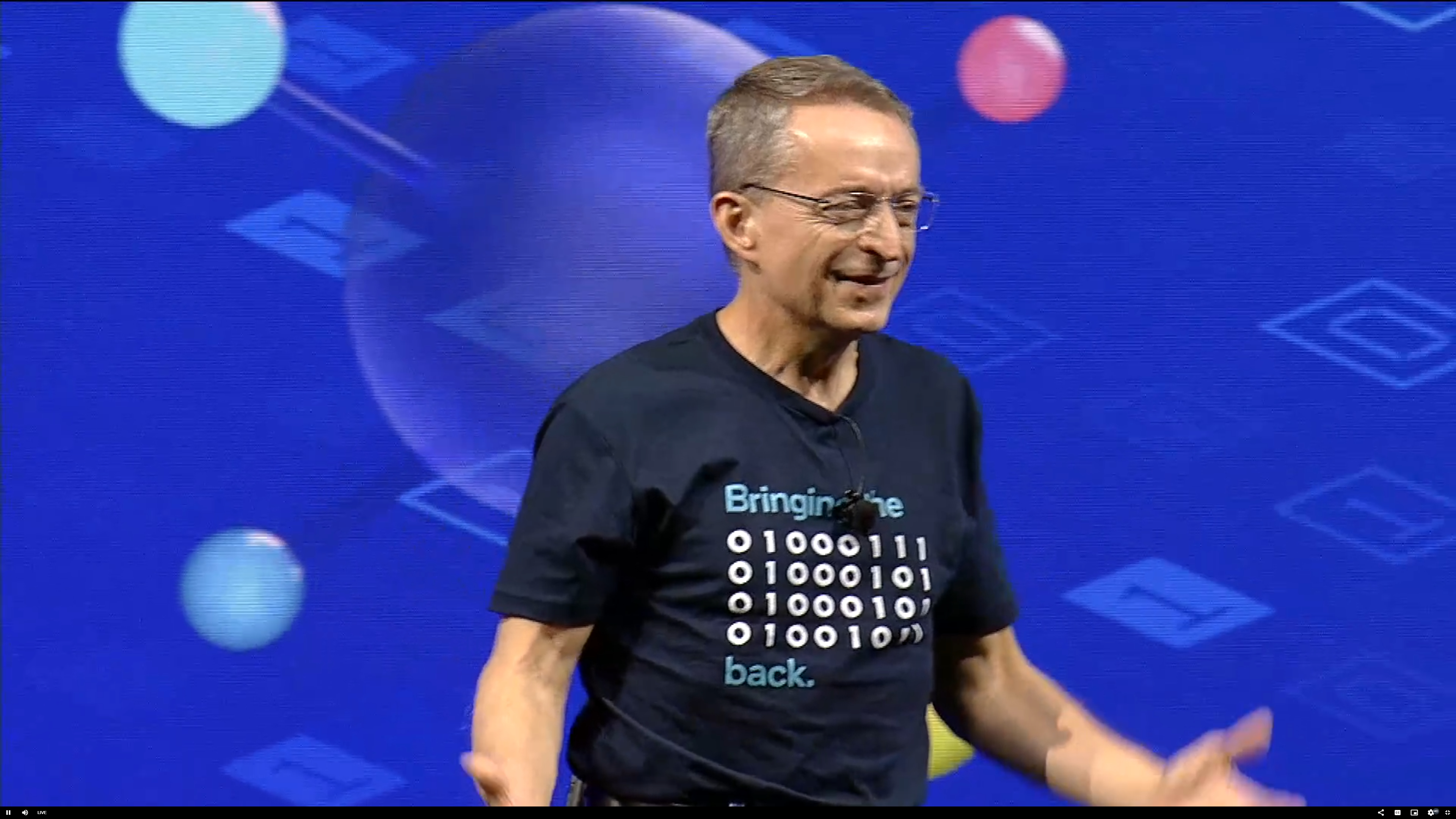
Gelsinger's shirt has 'GEEK" written in binary code.
Gelsinger said that a few technology superpowers have been pushing the digital world along, including compute, connectivity, cloud and edge infrastructure, and AI intelligence, but now he is adding 'sensing' to the list.
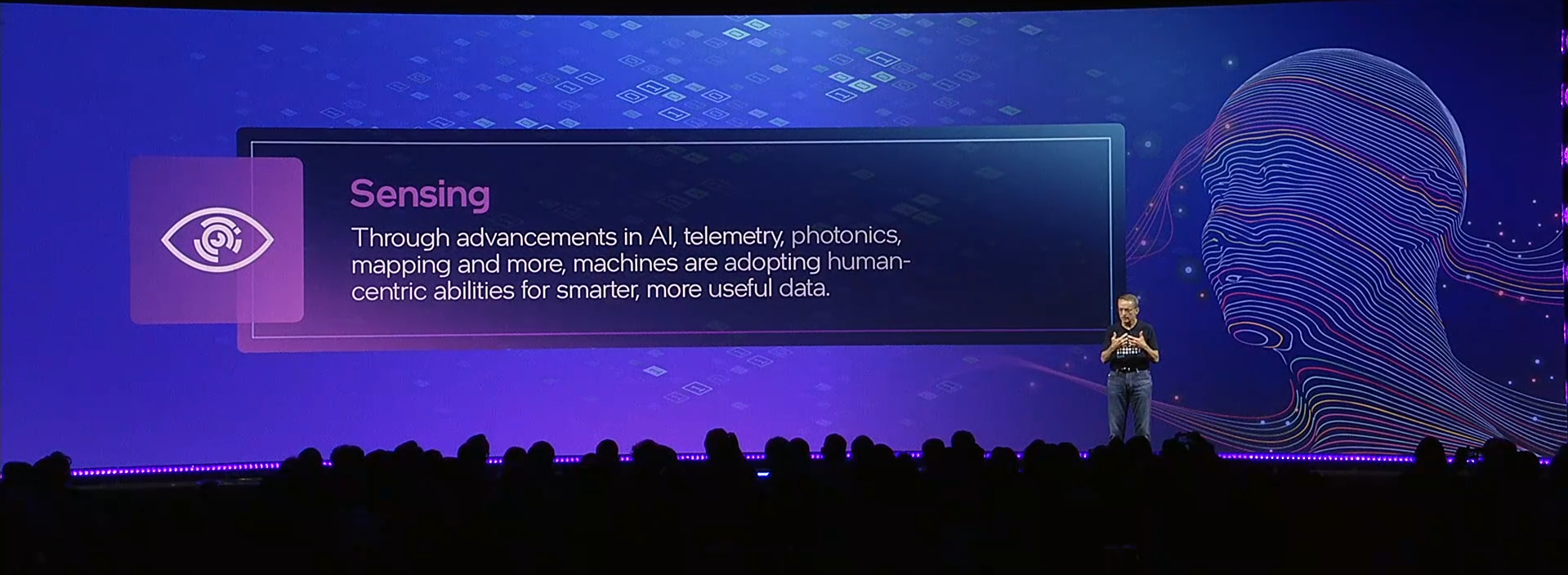
Gelsinger talked up Intel's new IDM 2.0 strategy, and how Moore's Law plays into the strategy. Gelsinger says Moore's Law isn't dead -- someone tell NVidia CEO Jensen Huang. Intel plans to develop five new nodes in four years.
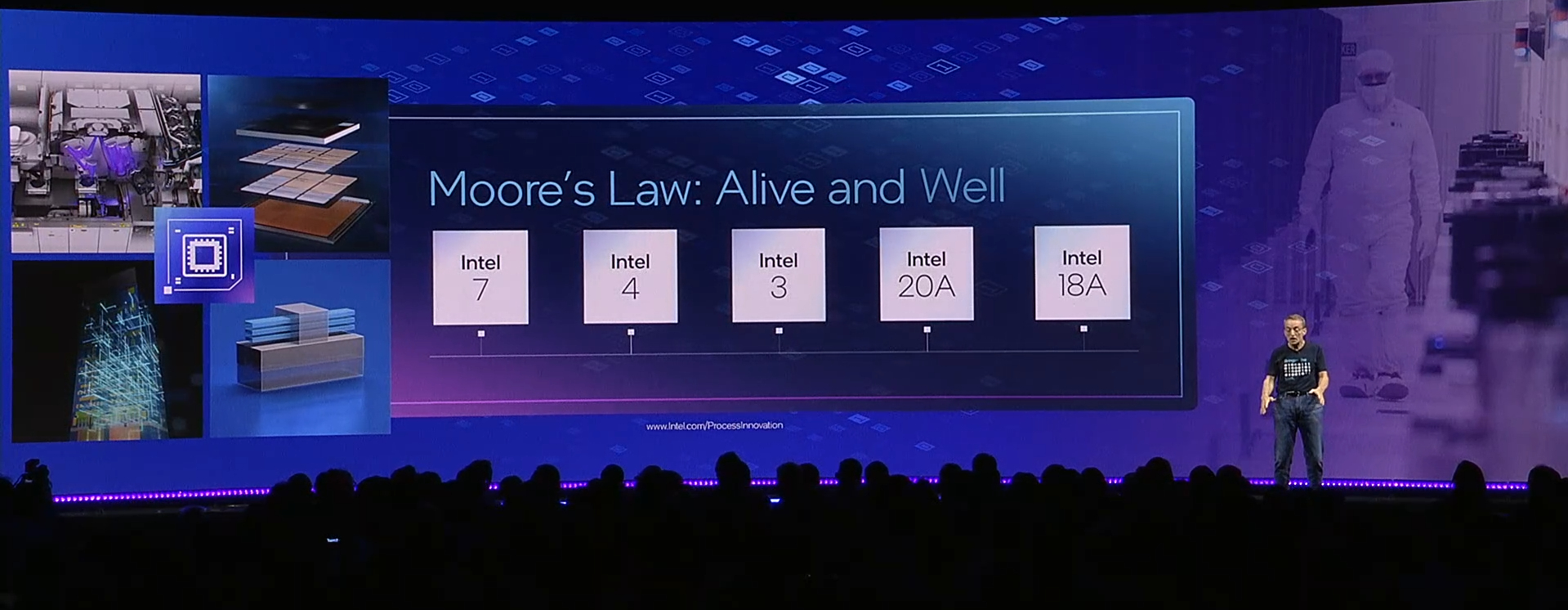
Intel will continue to work to build more semiconductor production capacity for IFS, and that includes its acquisition of Tower Semiconductor. Intel plans to make its Intel Foundry Services into a systems-level producer of chips. That requires producing not only chip wafers, but also chip packaging, software, and chiplets. On the latter, Intel is working to create industry standards, like UCIe, that foster a chiplet ecosystem. More than 80 companies are participating. Gelsinger then played a video showing leaders from TSMC and Samsung voicing their support for UCIe.
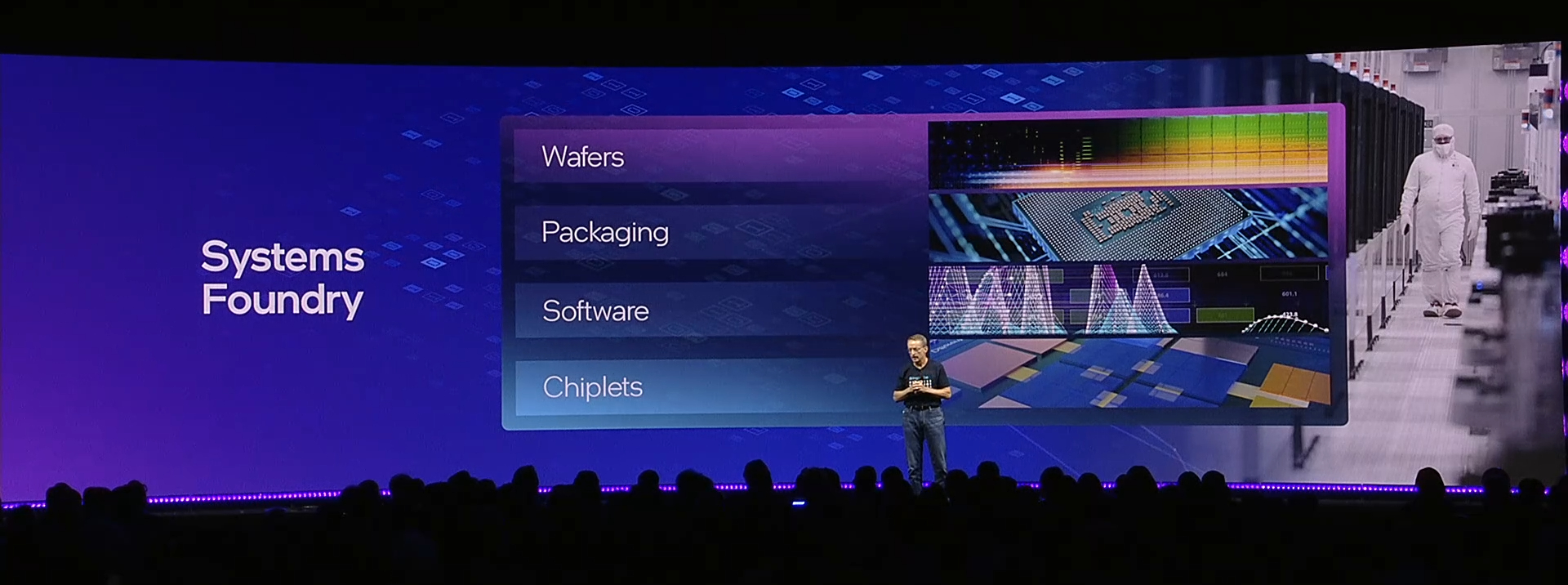
Intel is investing in the talent ecosystem, too, by working with universities to grow the next generation of chip designers. Intel's University Shuttle Program is already well underway.
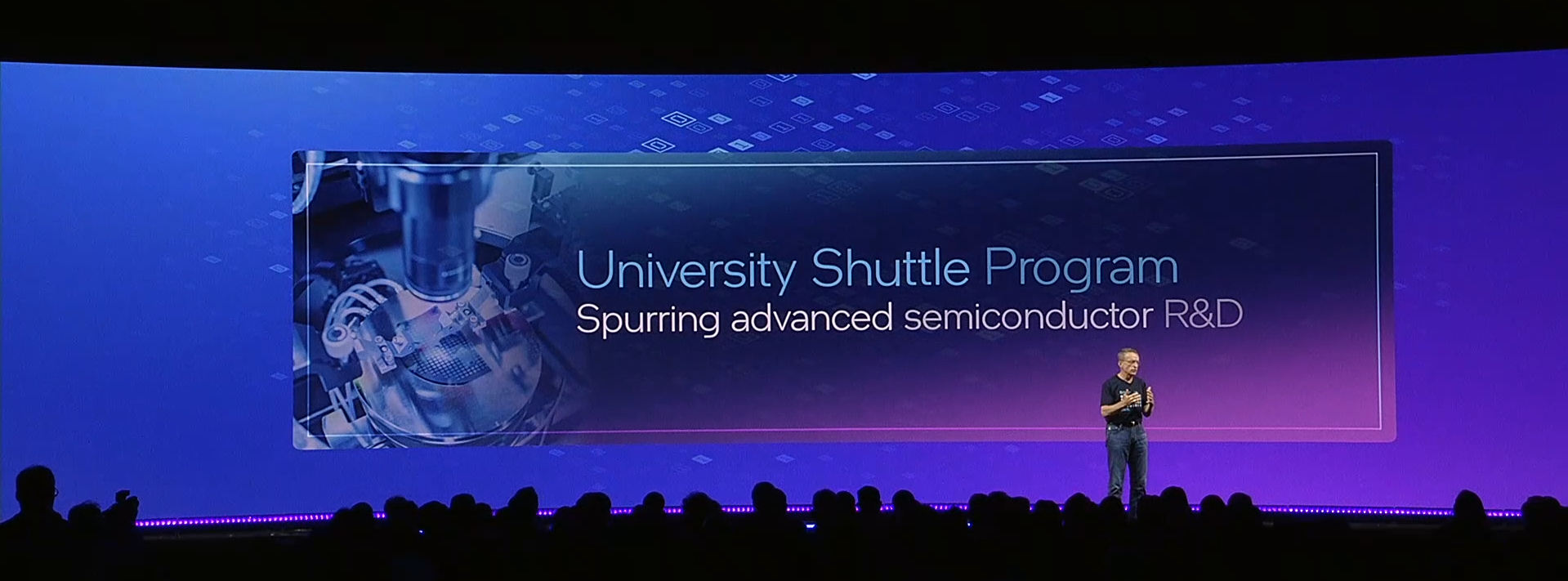
Gelsinger said that GPUs play a critical role in the future. Gelsinger said GPUs were on his list of unfinished tasks when he left Intel, but he is back to solve that problem. He then introduced the Flex 170 and Flex 140 data center GPUs. This has a hardware-based AV1 decoder for cloud providers. The GPUs also support OneAPI and all the major AI distributions.
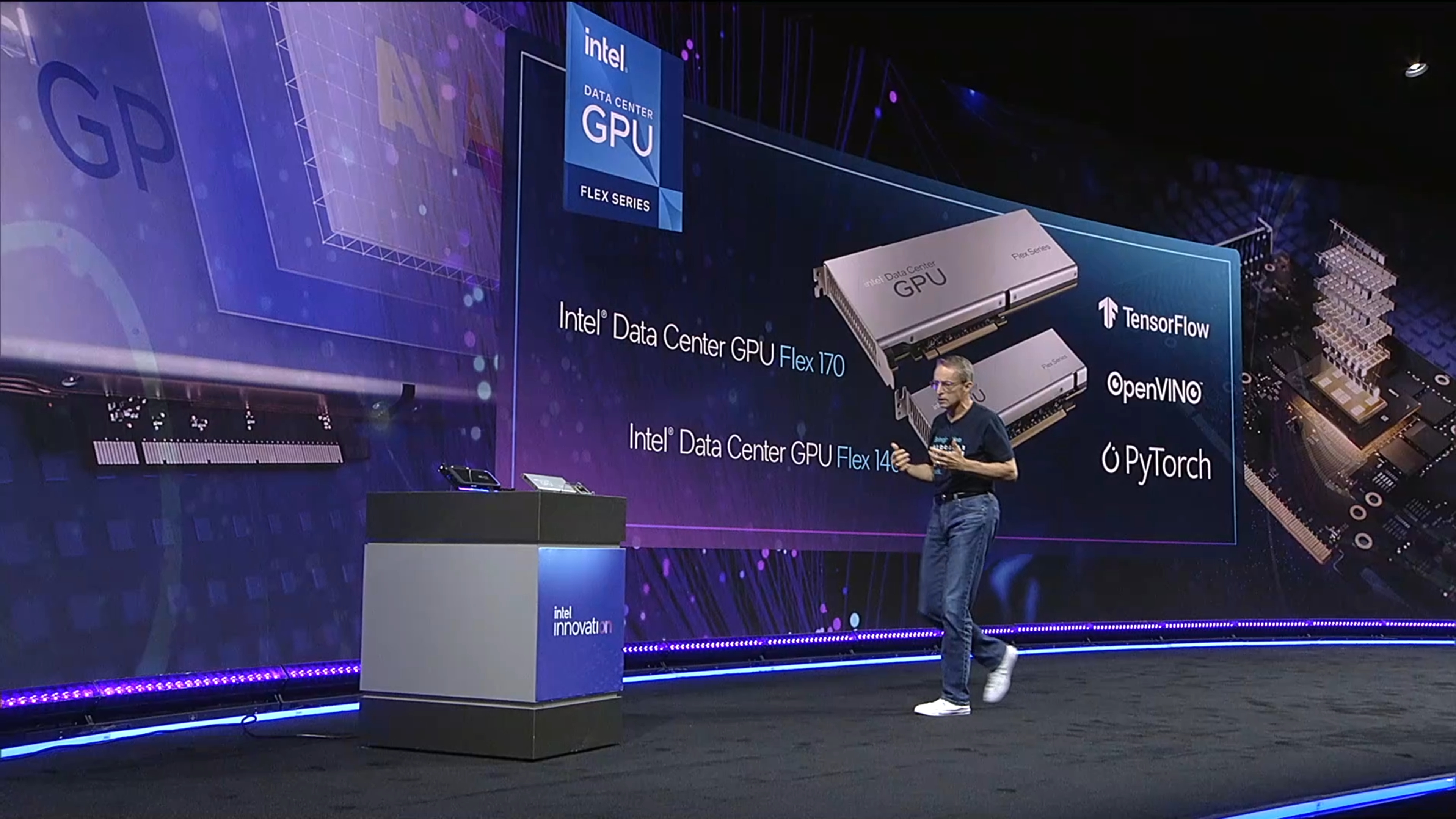
Gelsinger also flashed a Ponte Vecchio GPU and a Sapphire Rapids CPU that will power the Aurora supercomputer. Gelsinger announced that Intel is FINALLY shipping the silicon to the Aurora system.
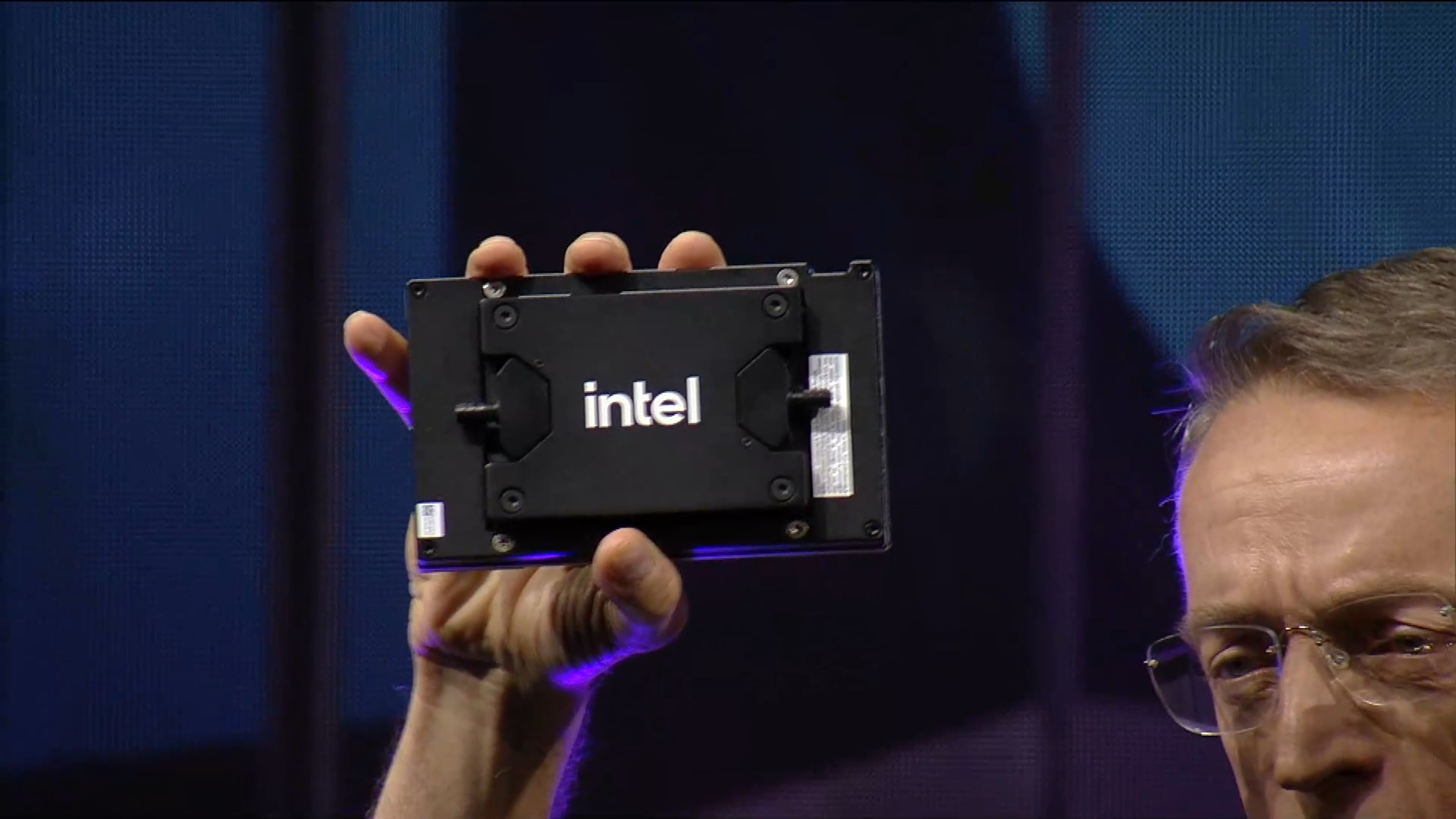
Gelsinger announced that Intel will help reduce excessively high GPU pricing for gamers, by introducing the Arc A770 GPU. He said it is 65% faster than the competition in ray tracing. It is available October 12th at $329. Cards are on the way to reviewers.
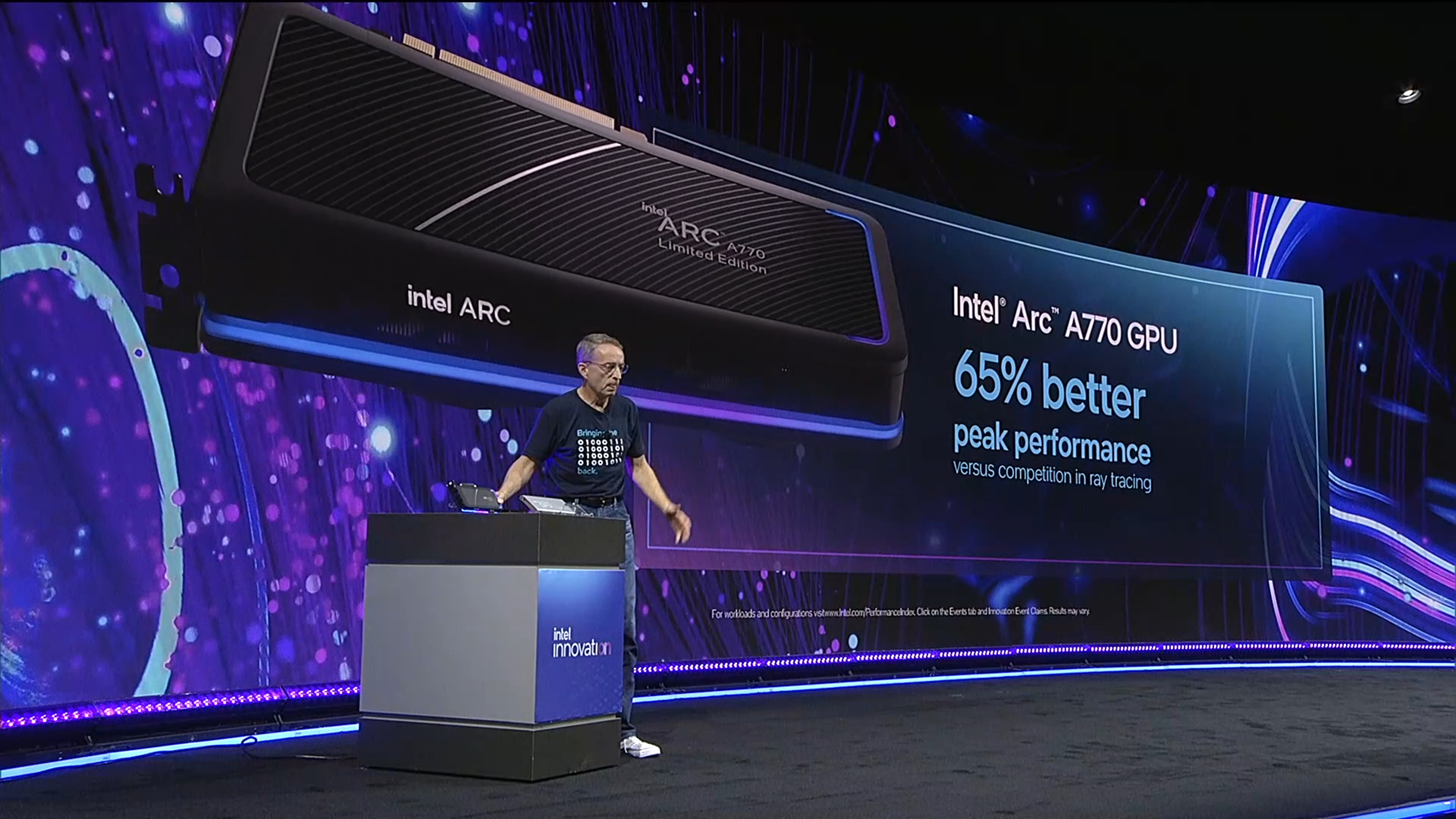
Here's the obligatory pic of the card.
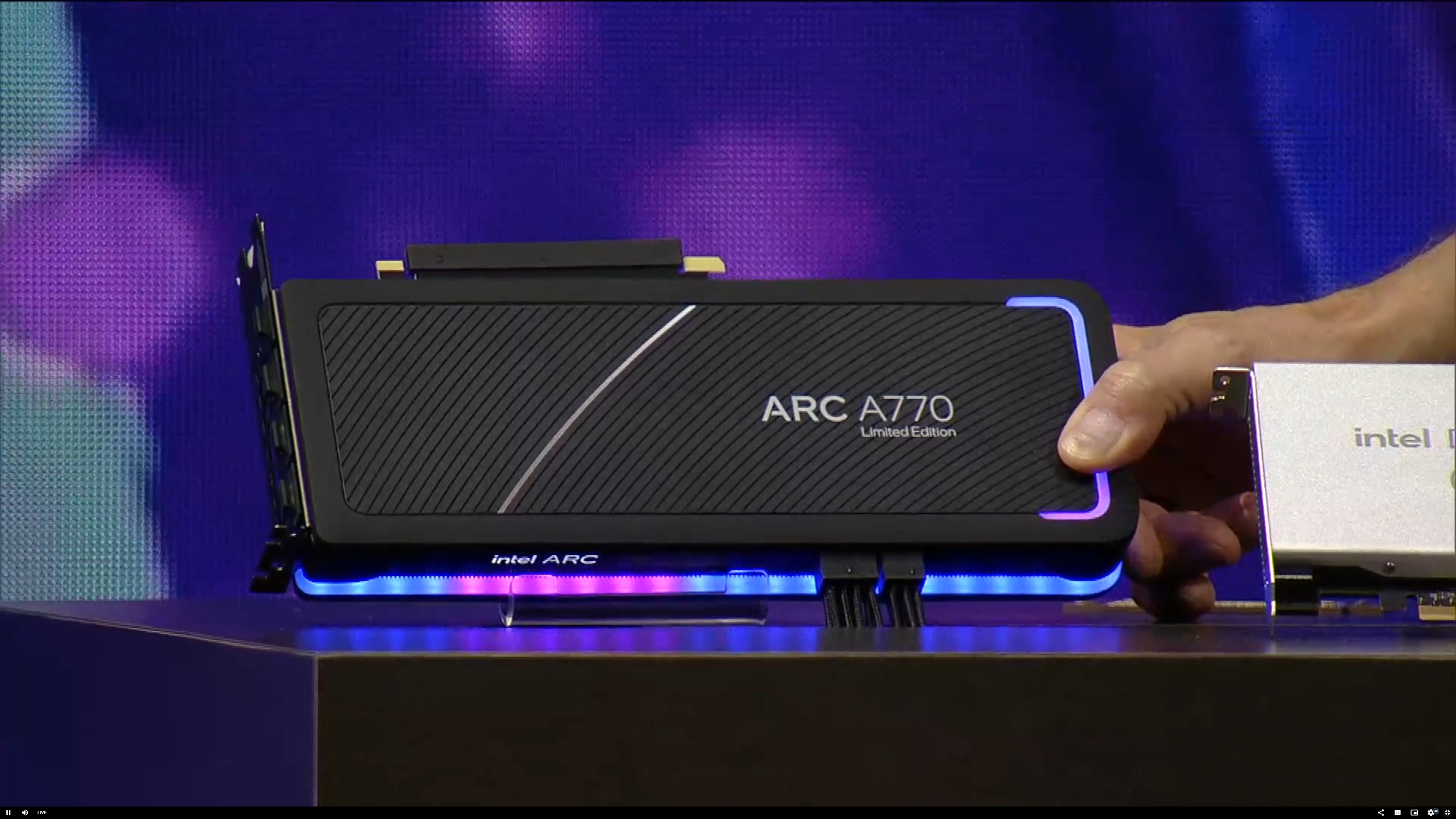
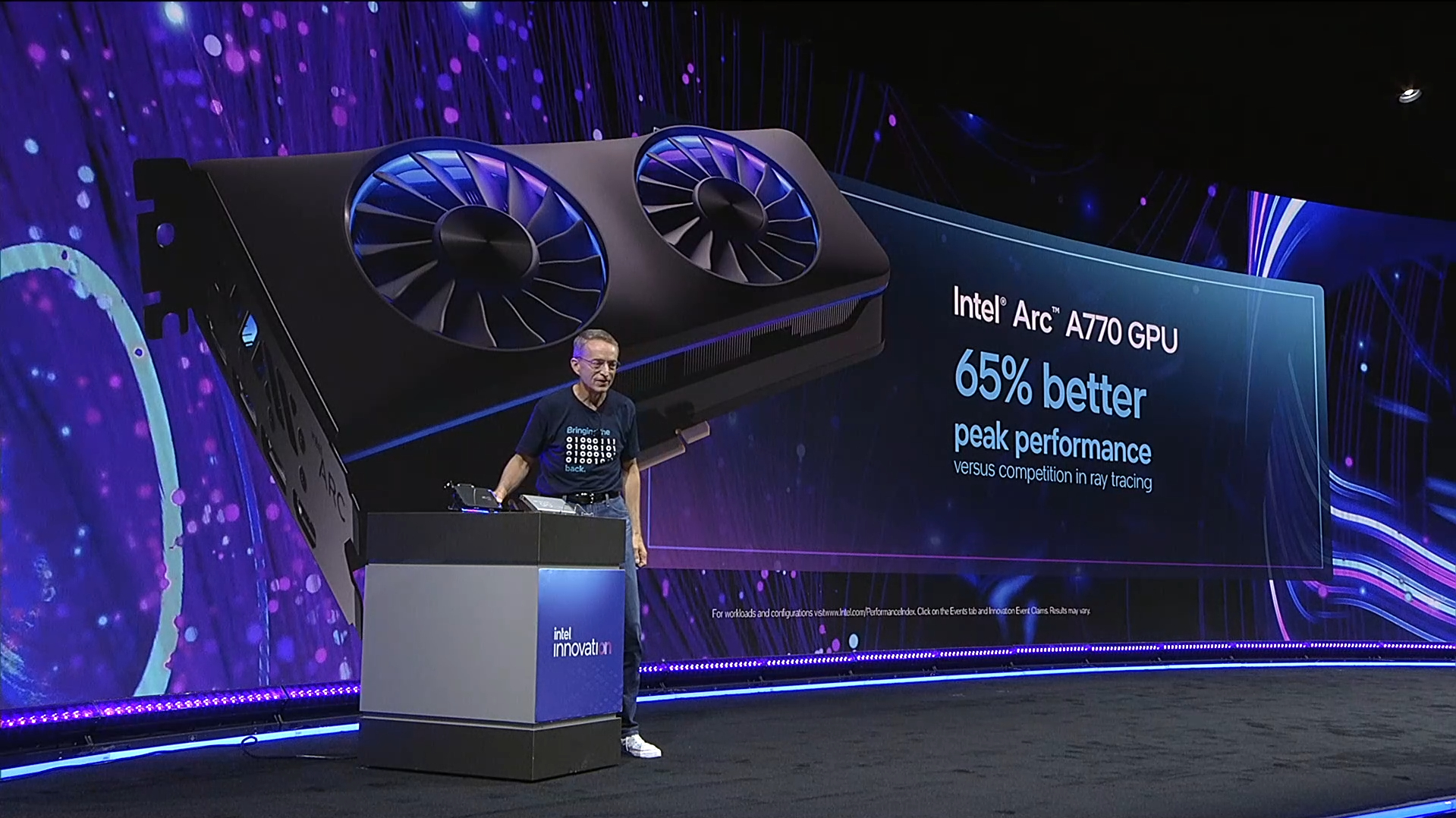
Gelsinger introduced the company's new AI director
Intel has a new neural coder that removes CUDA from code so it can run on Intel's OneAPI. Intel demoed the one-click solution that stripped out the code.
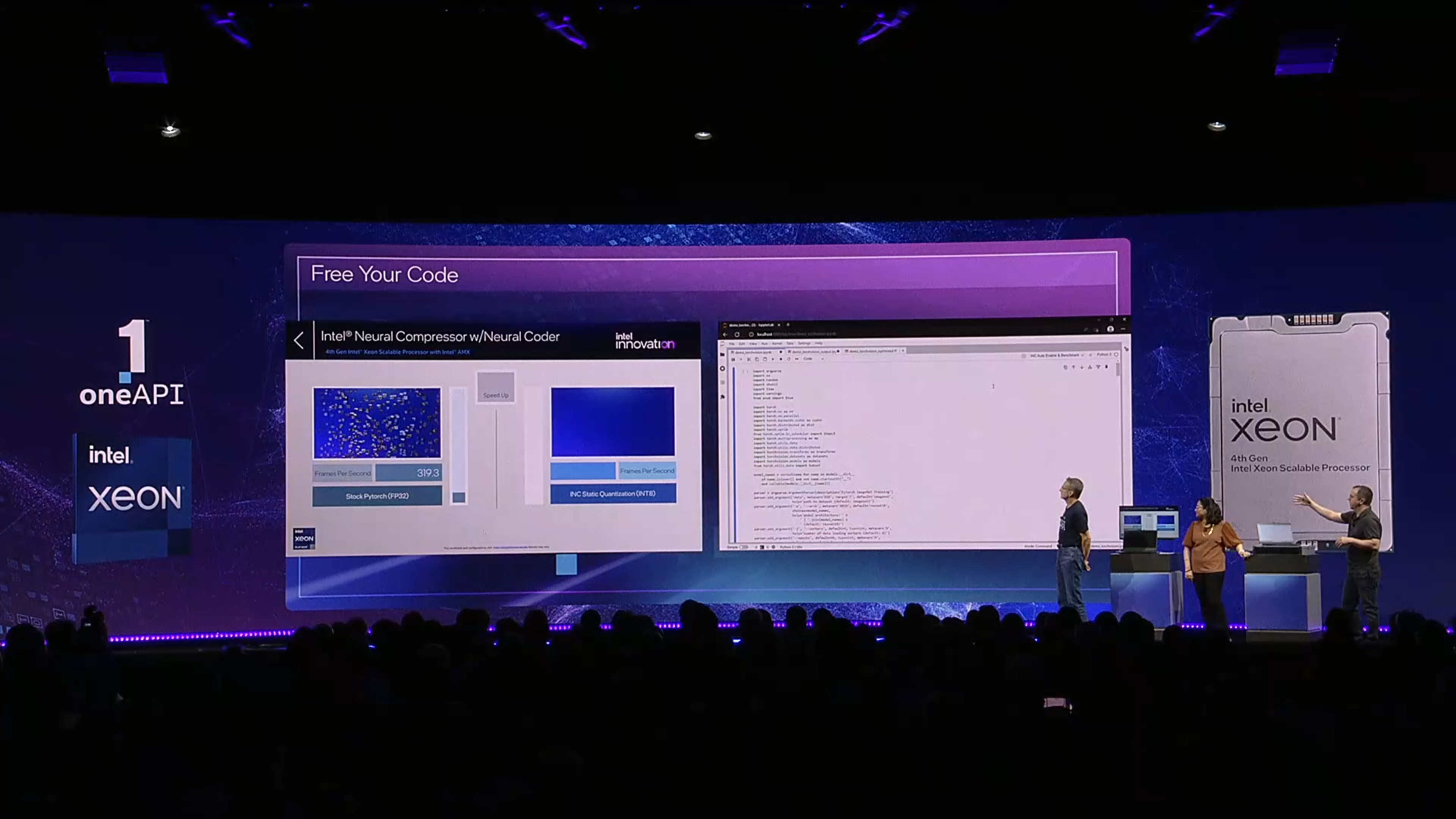
Gelsinger wants to make AI models easier to deploy, so it has developed a tool that helps correct AI models that have become outdated. The company demoed its new software at work.
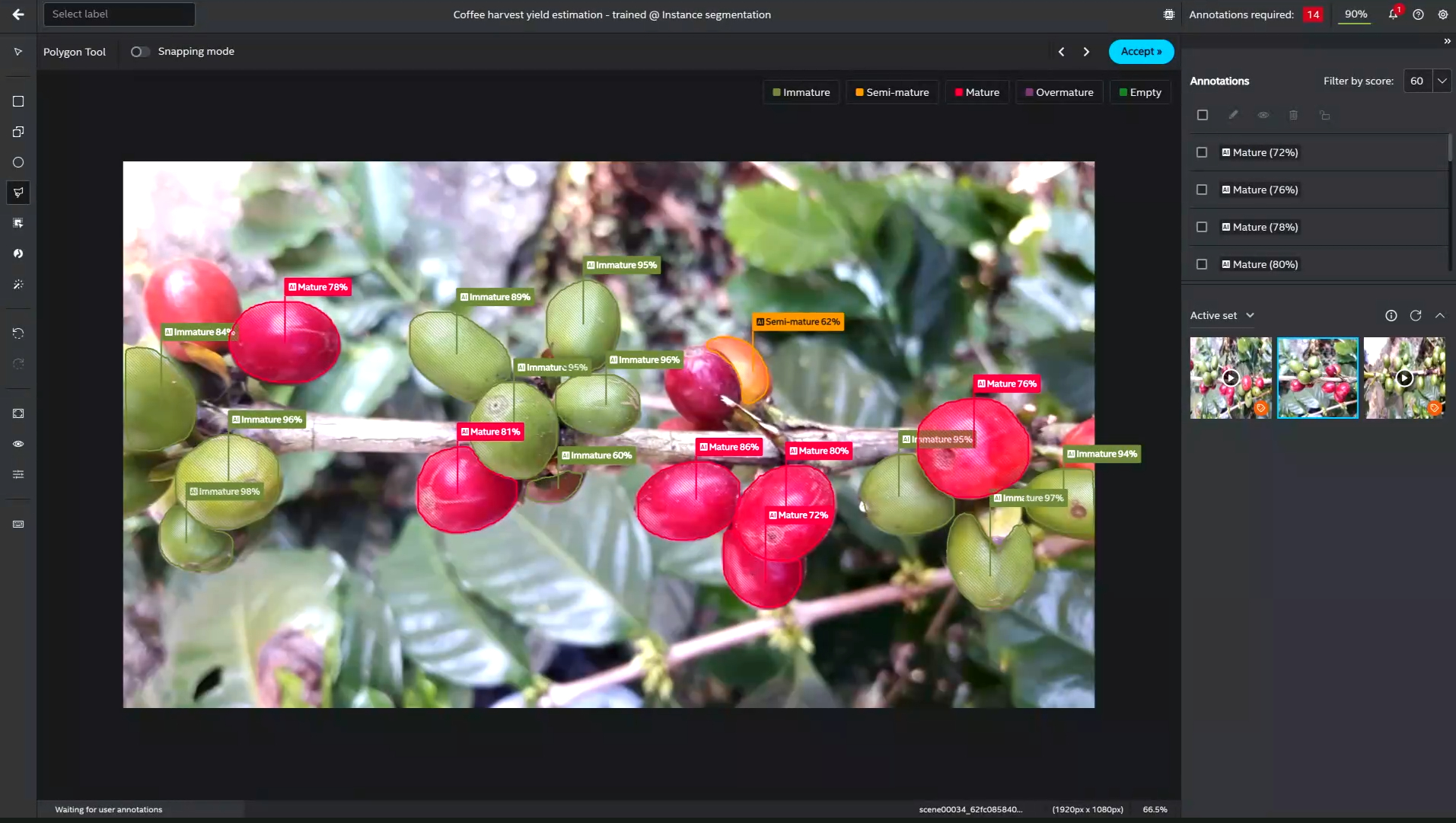
Intel is launching Intel Getty, an AI training software.
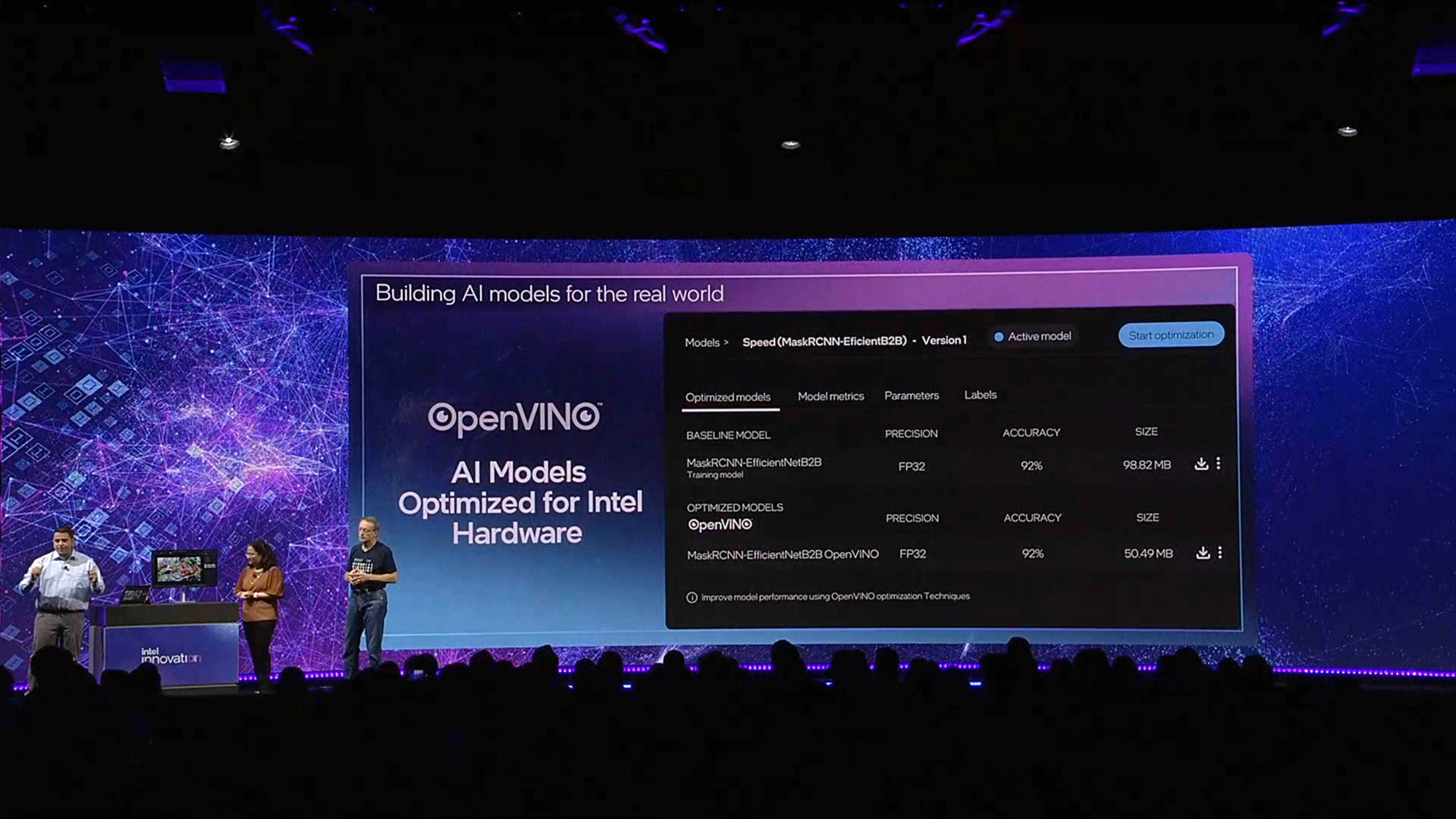
Gelsinger announced the Raptor Lake processors. They will come to market on October 20. You can read our coverage here.
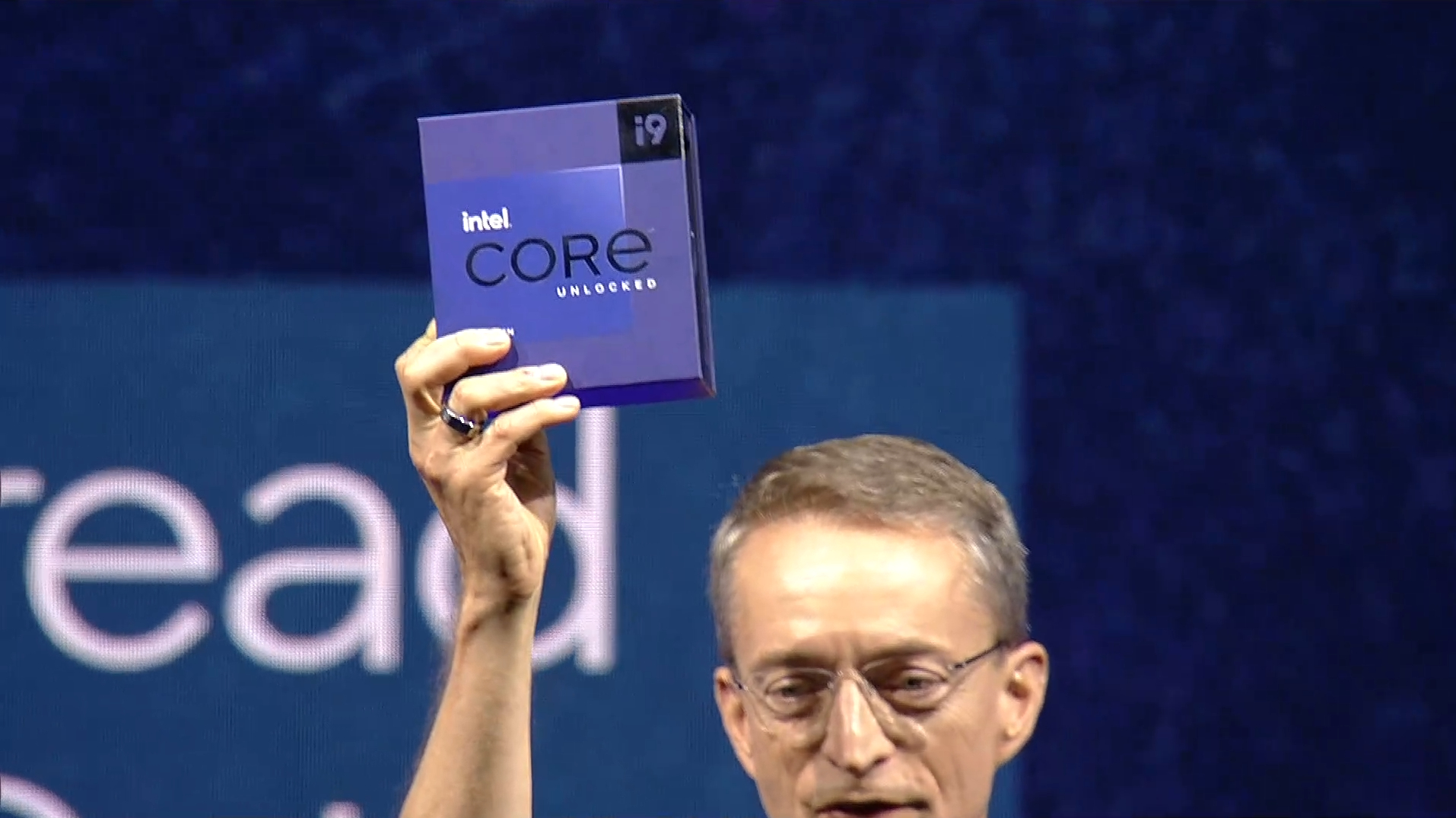
Intel will release a 6GHz SKU, in limited volumes. It will come to market next year.
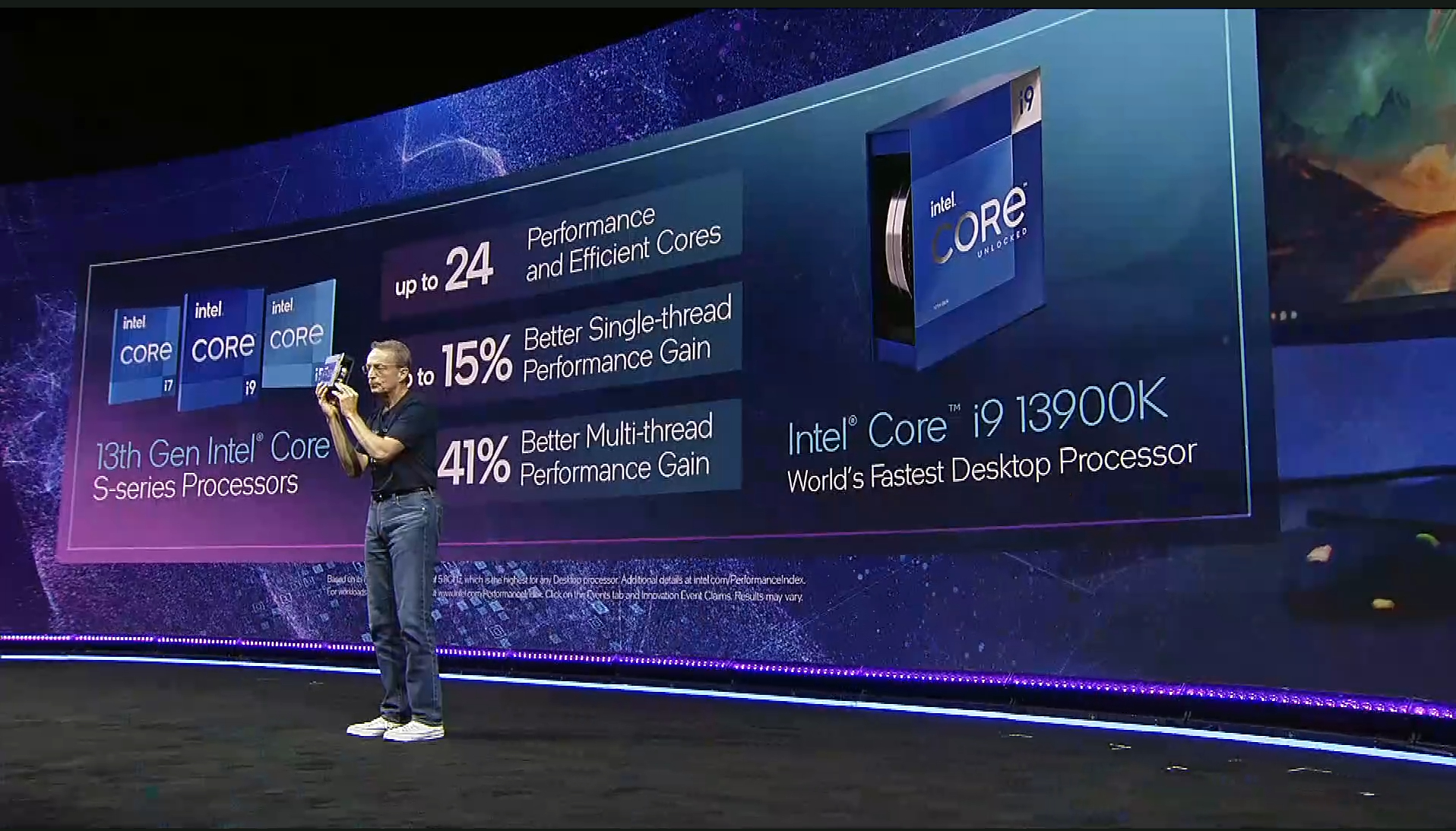
Intel will launch over 50 Raptor Lake chips and 500 designs.
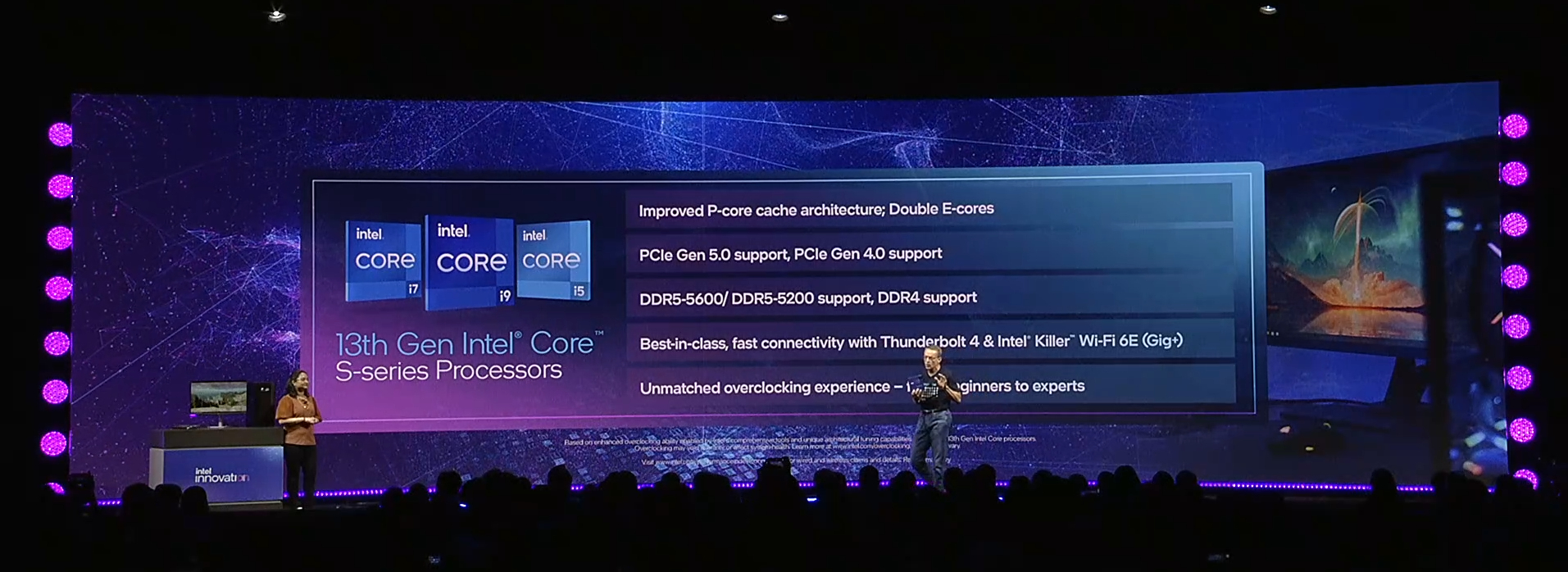
Samsung demoed a new Samsung flexible display that can shrink or expand by rolling. The 17-inch screen is for PCs.
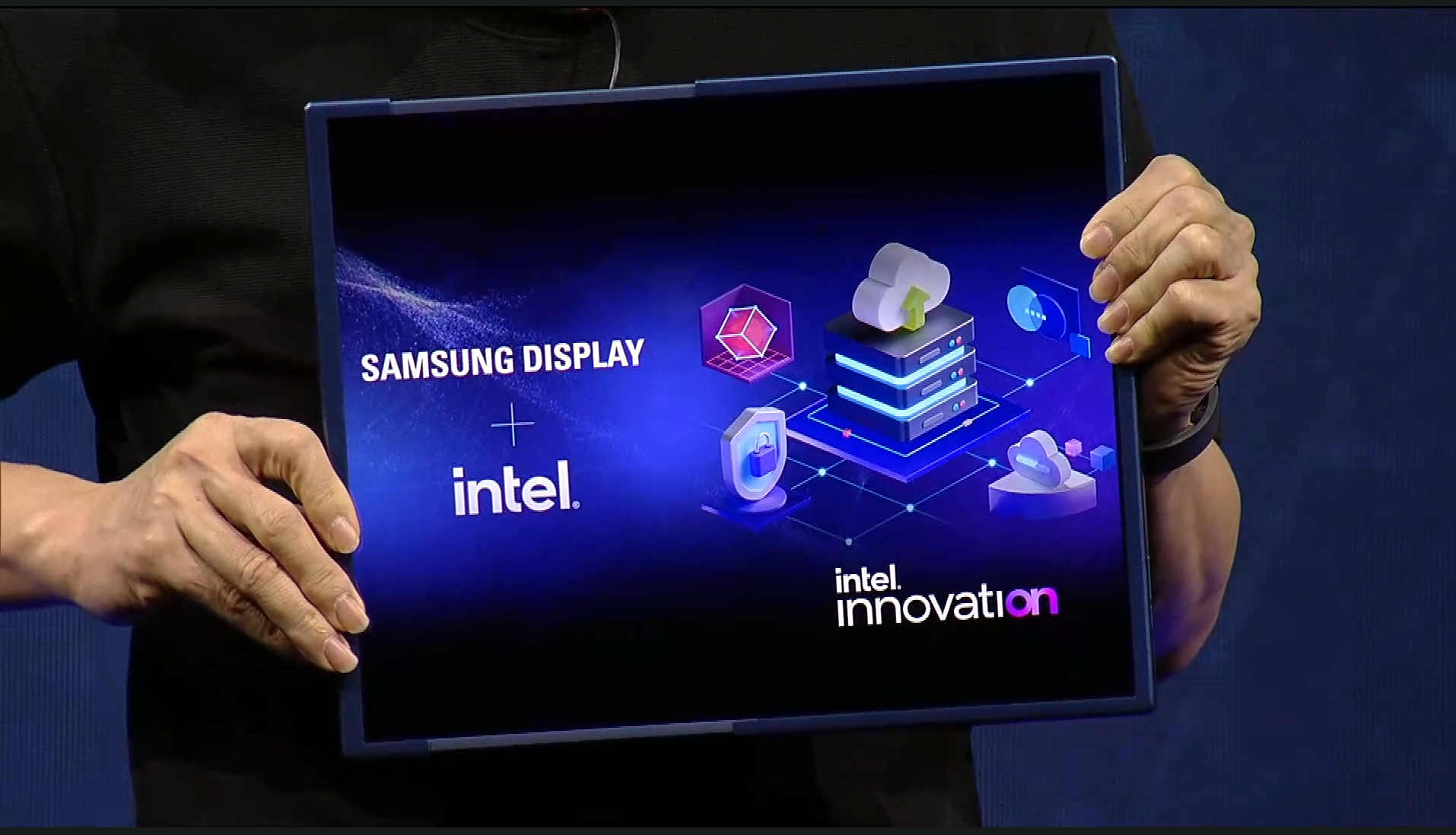
Intel is working on creating a seamless method of extending displays to PCs. You can also use iOS and Android devices to cast your screen to a PC. The new Unison software is coming to new laptops this holiday season from Acer, HP and Lenovo.
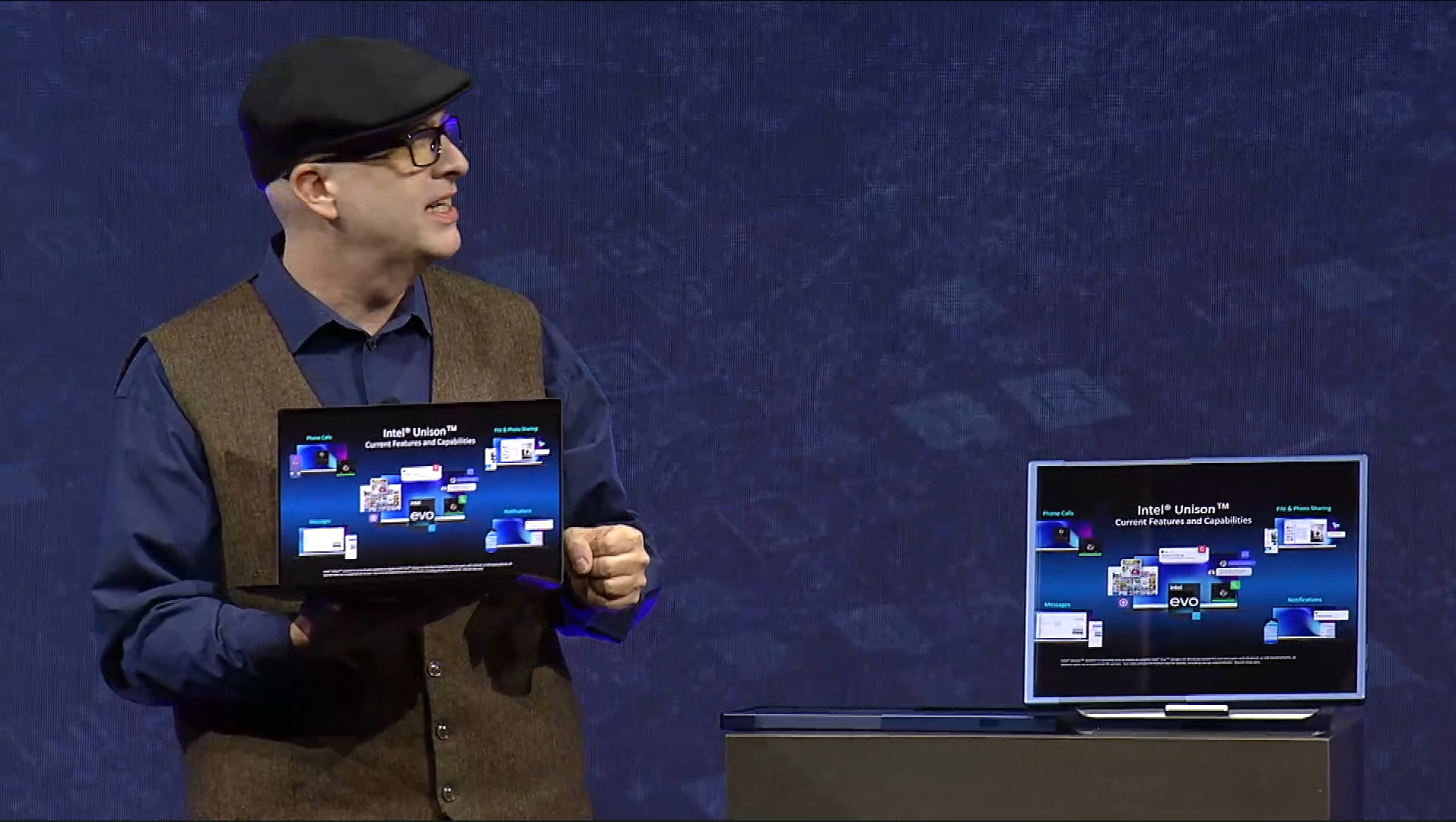
Gelsinger played a video of a much younger version of himself talking about optical photonics, and how the goal is to make that part of every chip Intel makes. The video was from two decades ago. Intel connected to its lab in Scotland for a demo of a new optical connector that connects directly to an Intel CPU.
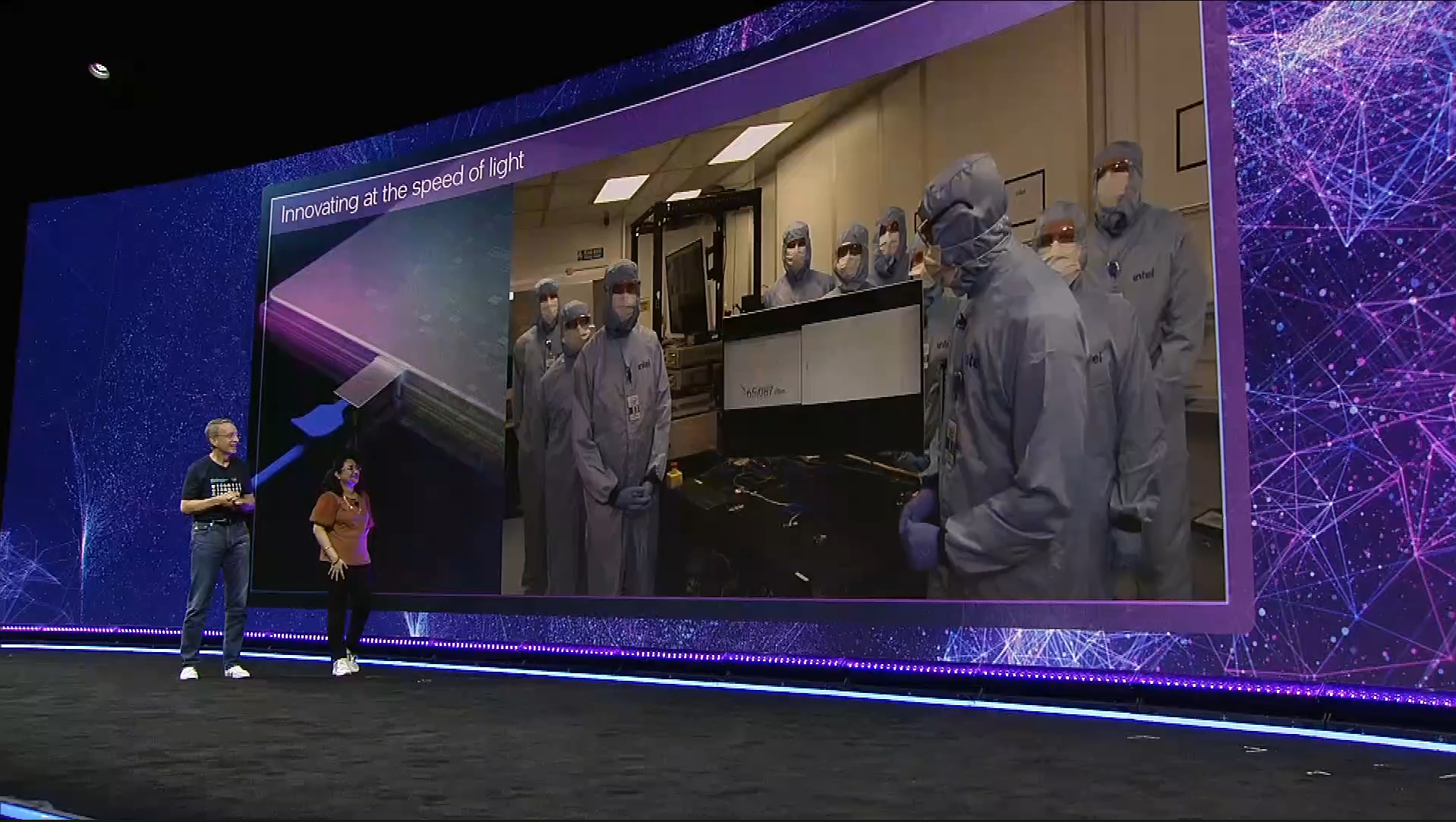
Intel also demoed attaching and reattaching the chip to the optical cable.

Gelsinger brought Linus Trovalds, the creator of the Linux kernel, on stage to talk about Intel's commitment to open source.
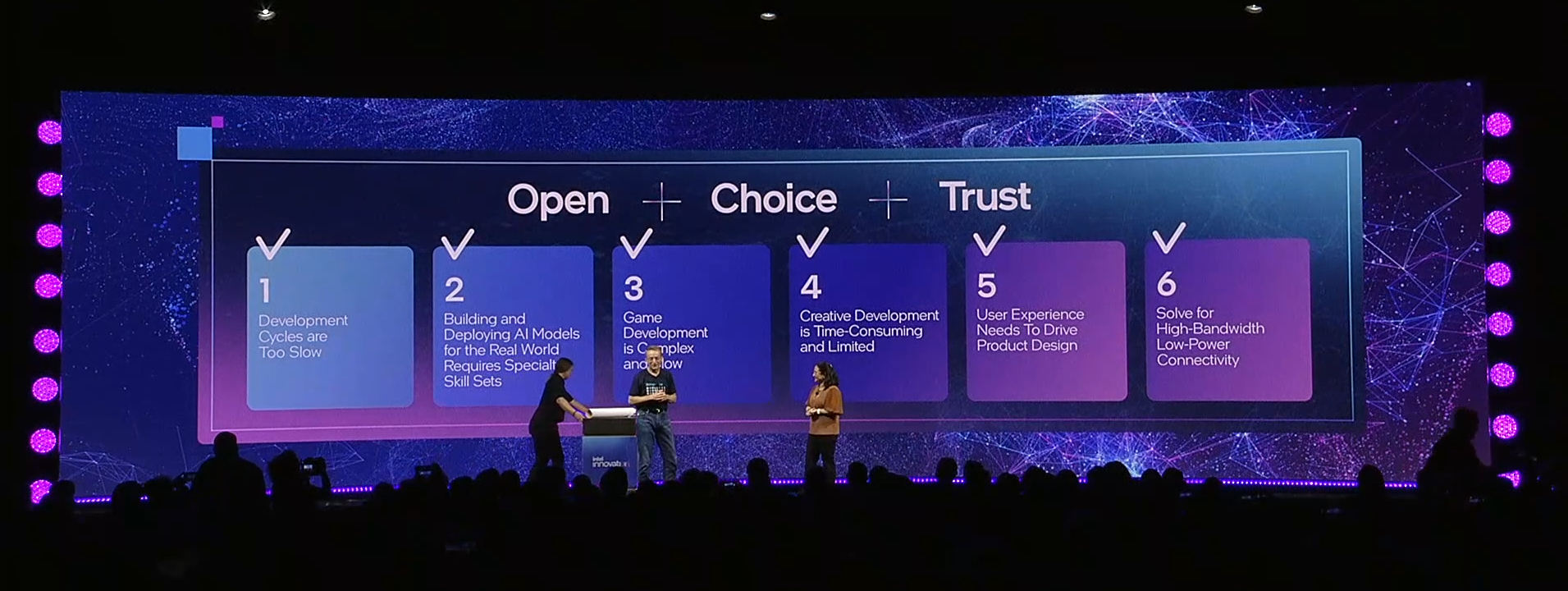
Gelsinger presented Trovalds with an 8086 programming guide.
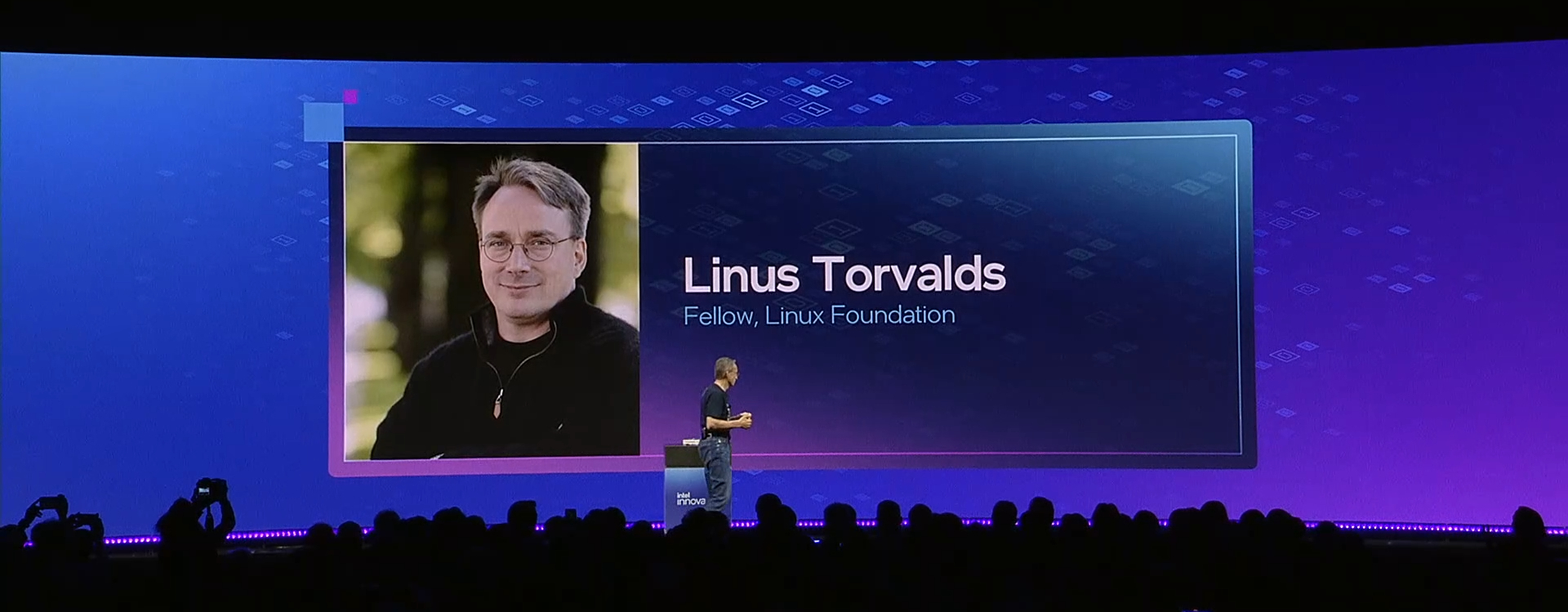
Intel presented Linus Trovalds with the first-ever Intel Innovation award.
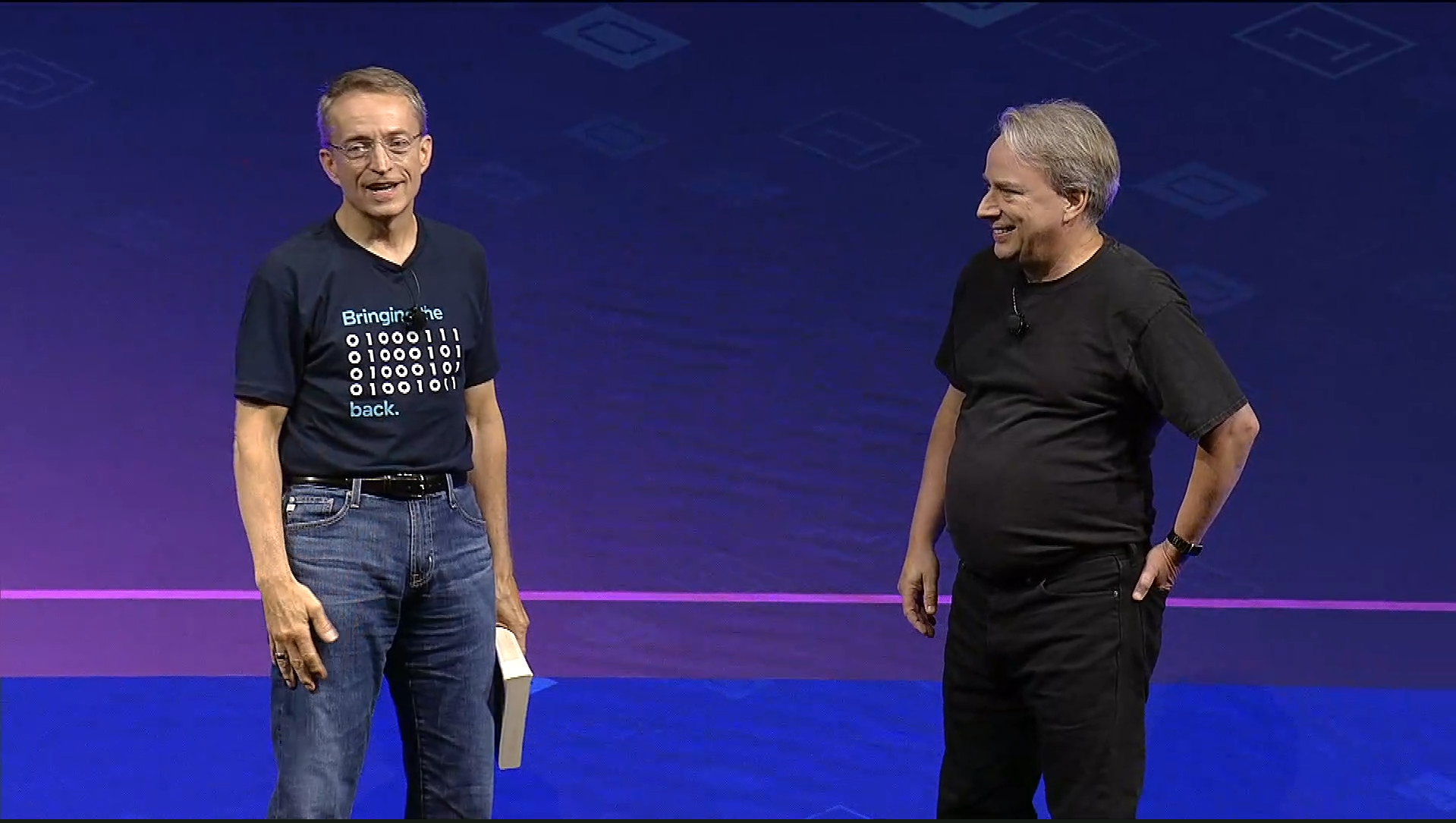
Gelsinger closed out the keynote, saying that we have taken a peek into the future that we will all create together. And that's a wrap.
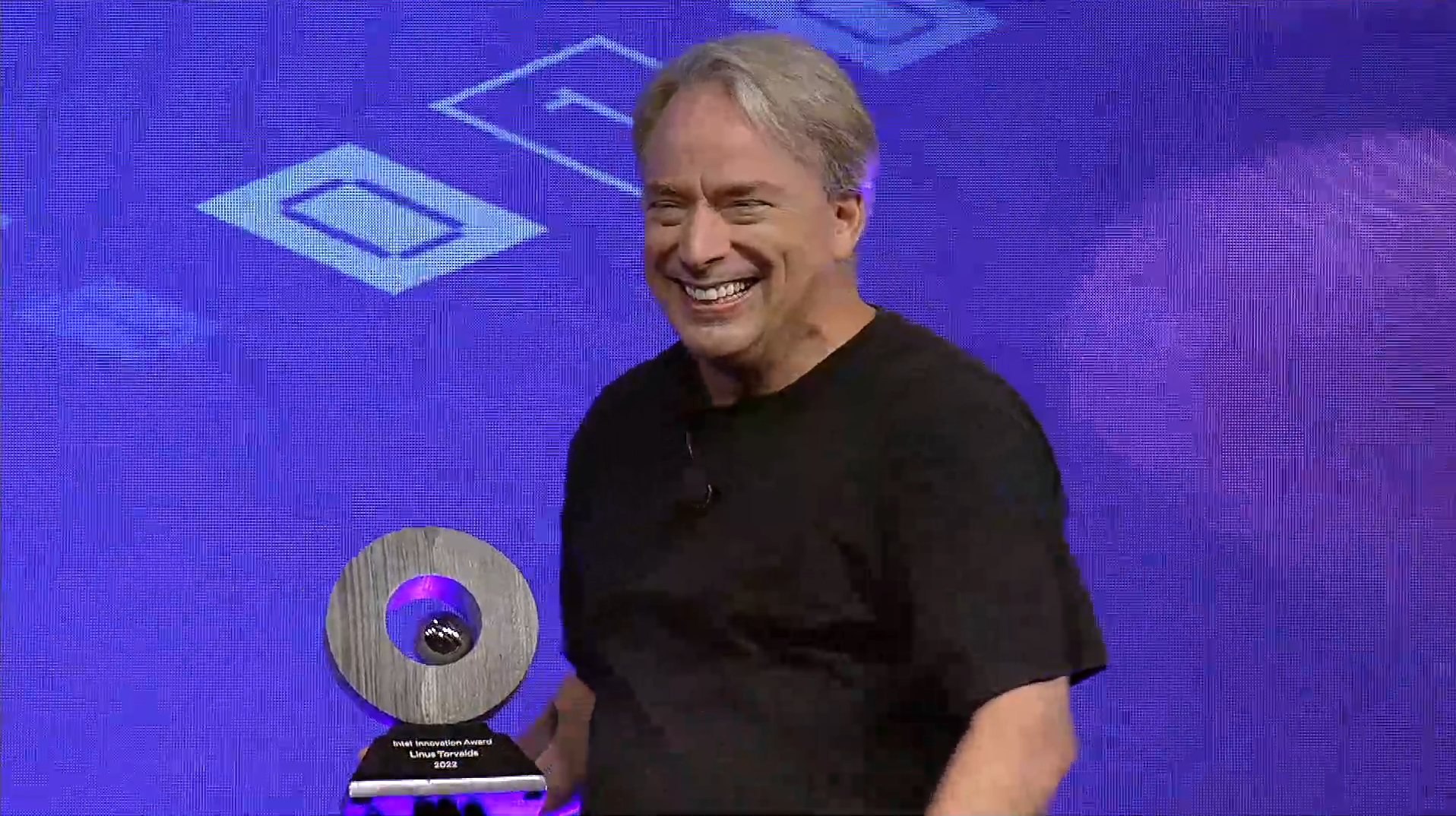
Definately not Linus Trovalds... Rather Torvalds, the man in Black.
Hey! Mr. Penguin Man, play a song for me
In the jingle jangle morning I'll come followin' you